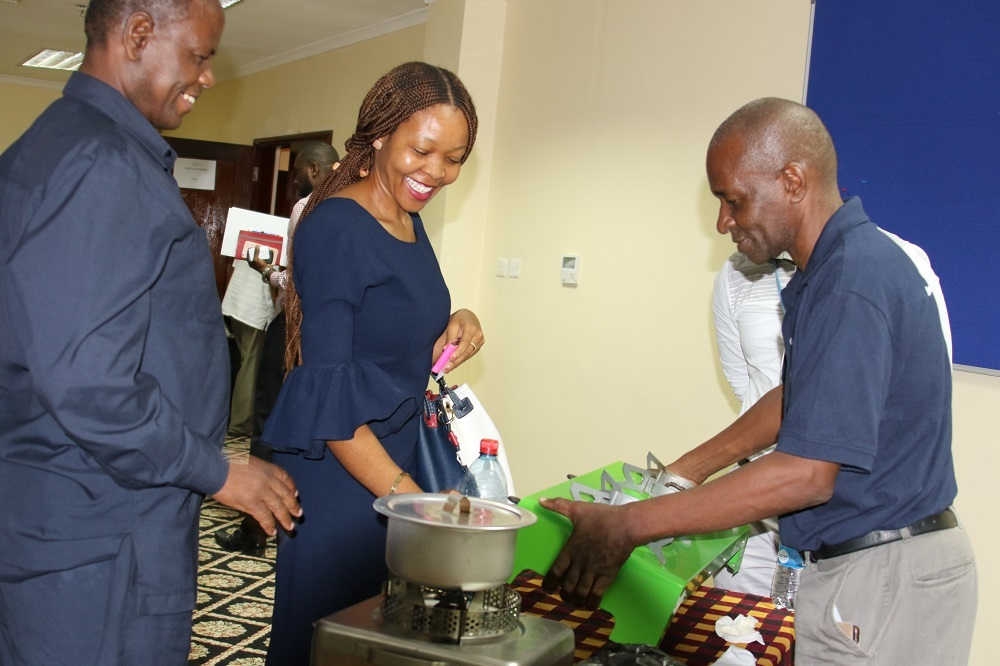A sweet approach to clean cooking
01 April 2019 UNIDO

You may find it hard to believe that in a time when going to Mars and artificial intelligence have become water cooler talk, over three billion people still rely on charcoal, firewood or agricultural residues as their main fuels for cooking. The practice is not only one of the leading causes of rapid deforestation, but is also responsible for seven million deaths every year. Regular exposure to smoke causes many people, usually women and girls tasked with cooking, to develop a host of debilitating conditions ranging from respiratory infections to long-term heart and lung diseases.
Sadly, efforts to increase the use of clean cooking fuels have floundered. Many people remain unaware of the dangers arising from burning solid fuels, while others struggle to access cleaner fuels because, in many parts of the world, they are either extremely hard to come by or simply too expensive.
However, a UN agency has found an innovative way to tackle the problem. UNIDO, the United Nations organization promoting inclusive and sustainable industrial development, is implementing a programme which creates value chains of clean cooking fuels and technologies in several countries.
The agency is already working in the city of Dar es Salaam, in Tanzania, a place where 91% of households consume charcoal on a regular basis. The project, established with funds from the Global Environment Facility and implemented in partnership with the local government, has the goal of converting 500,000 middle-income households to the use of bioethanol as a fuel for cooking.
One of the initiative’s most relevant steps comes from the Tanzanian government, which is passing legislation meant to discourage the use of solid fuels. These include smoke-control measures and increased taxation on charcoal. The actions will be accompanied by an awareness campaign sponsored by the government which will inform consumers of the advantages of clean-cooking habits.
Simultaneously, the project is working to ensure modern stoves are available. Local companies are being encouraged to manufacture an initial amount of 500,000 stoves expected to cost between 20 and 35 dollars each. A financing scheme and subsidies will ensure they can be affordable for the targeted population. Moreover, when purchasing a subsidized stove, customers will be required to buy ten litres of bioethanol in order to jumpstart the demand for fuel. Altogether, the adoption of these measures is expected to increase in demand to about 90 million litres of bioethanol a year, a turnover approaching US$88m.
The project leverages on this market opportunity to mobilize Tanzania’s sugar industry, which dates back to the 1920s, to quickly increase the country’s production of bioethanol and meet demand. The process of refining sugar produces a thick sugary syrup called molasses, a material that can also be used to produce bioethanol, an alternative to solid fuel for household cooking and heating. Government regulation will incentivize existing sugar production plants to increase the production of fuel grade bioethanol. It is expected that the adoption of this clean fuel will allow families to reduce expenses on cooking fuels by 70%, from 80,000 Tanzanian shillings (35 dollars) to 24,000 (10 dollars) every month.
The bioethanol will be available to customers through the development of a distribution network. The companies contracted by the project to perform this task will have to guarantee that the majority of sales agents employed are women, who will be trained and accredited by the project to safely handle both the fuel and stoves. They will also be responsible for teaching customers how to use the modern stoves, a step essential to the initiative’s success.
This “market enabling framework,” as the approach is called, goes beyond promoting the adoption of clean cooking fuels. It turns the lack of clean cooking fuels into an economic opportunity to incubate several new industries manufacturing bioethanol and stoves, and to create new jobs. Plans are already in place to expand the programme to 20 countries in Africa and Asia, home to 83 percent of the world’s population that still relies on traditional cooking methods.